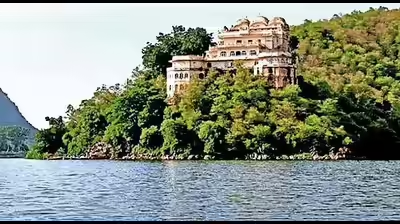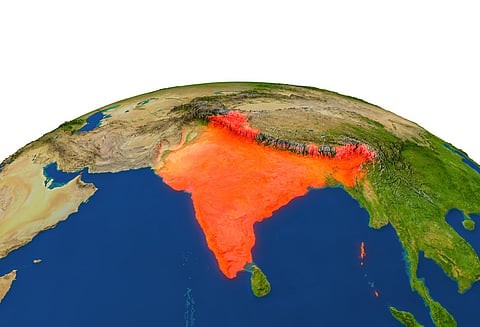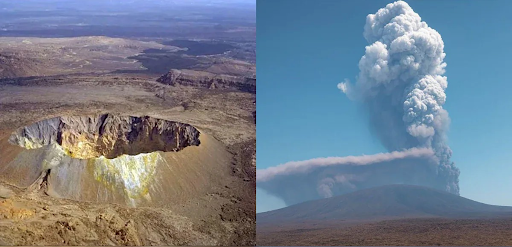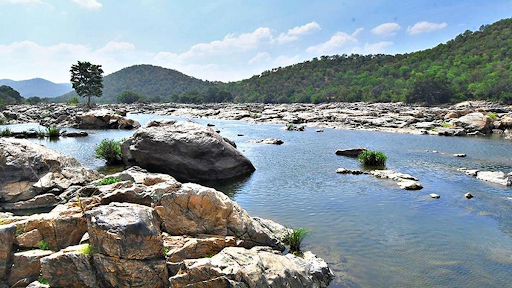Description
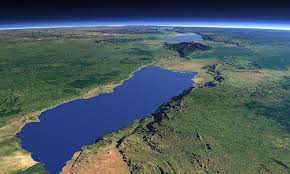
Disclaimer: Copyright infringement not intended.
Context
- The water levels of lakes in Kenya’s Great Rift Valley increased significantly, hurting local communities and biodiversity. Climate change, human activities and an active tectonic belt are to blame for this crisis, according to a new report.
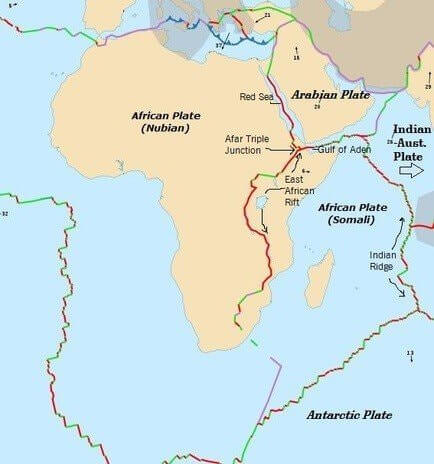
Great Rift Valley
- The Great Rift Valley is a series of contiguous geographic trenches, approximately 7,000 kilometres in total length, that runs from the Beqaa Valley in Lebanon which is in Asia to Mozambique in Southeast Africa.
- It is a merging of separate though related rift and fault systems.
- The divergent plate boundary which extends from the Afar Triple Junction southward across eastern Africa, and is in the process of splitting the African Plate into two new separate plates.
- Geologists generally refer to these incipient plates as the Nubian Plate and the Somali Plate.
- In Kenya, Uganda and the fringes of South Sudan, the Great Rift runs along two separate branches.
- The East African Rift follows the Red Sea to the end before turning inland into the Ethiopian highlands, dividing the country into separate mountainous regions.
- The Western Rift, also called the Albertine Rift, is bordered by some of the highest mountains in Africa, including the Virunga Mountains, Mitumba Mountains, and Ruwenzori Range.
- It contains the Rift Valley lakes, which include some of the deepest lakes in the world (up to 1,470 metres (4,820 ft) deep at Lake Tanganyika). (Map above)
- Much of this area lies within the boundaries of national parks such as Virunga National Park in the Democratic Republic of Congo, Rwenzori National Park and Queen Elizabeth National Park in Uganda, and Volcanoes National Park in Rwanda.
- Lake Victoria is considered to be part of the rift valley system although it actually lies between the two branches.
- All of the African Great Lakes were formed as the result of the rift, and most lie in territories within the rift.
Rift Valley Lakes
- The Rift Valley lakes are a series of lakes in the East African Rift valley that runs through eastern Africa from Ethiopia in the north to Malawi in the south, and includes the African Great Lakes in the south.
- These include some of the world's oldest lakes, deepest lakes, largest lakes by area, and largest lakes by volume.
- The World Wide Fund for Nature has designated these lakes as one of its Global 200 priority ecoregions for conservation.
- The major Rift Valley lakes are as follows:
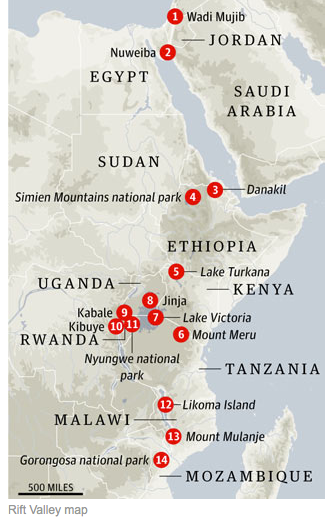
World Wide Fund for Nature
- The World Wide Fund for Nature (WWF) is an international non-governmental organization founded in 1961 that works in the field of wilderness preservation and the reduction of human impact on the environment.
- WWF is part of the Steering Group of the Foundations Platform F20, an international network of foundations and philanthropic organizations.
https://www.downtoearth.org.in/news/africa/rising-water-levels-in-kenya-s-rift-valley-lakes-379-935-people-require-urgent-humanitarian-assistance-80128







